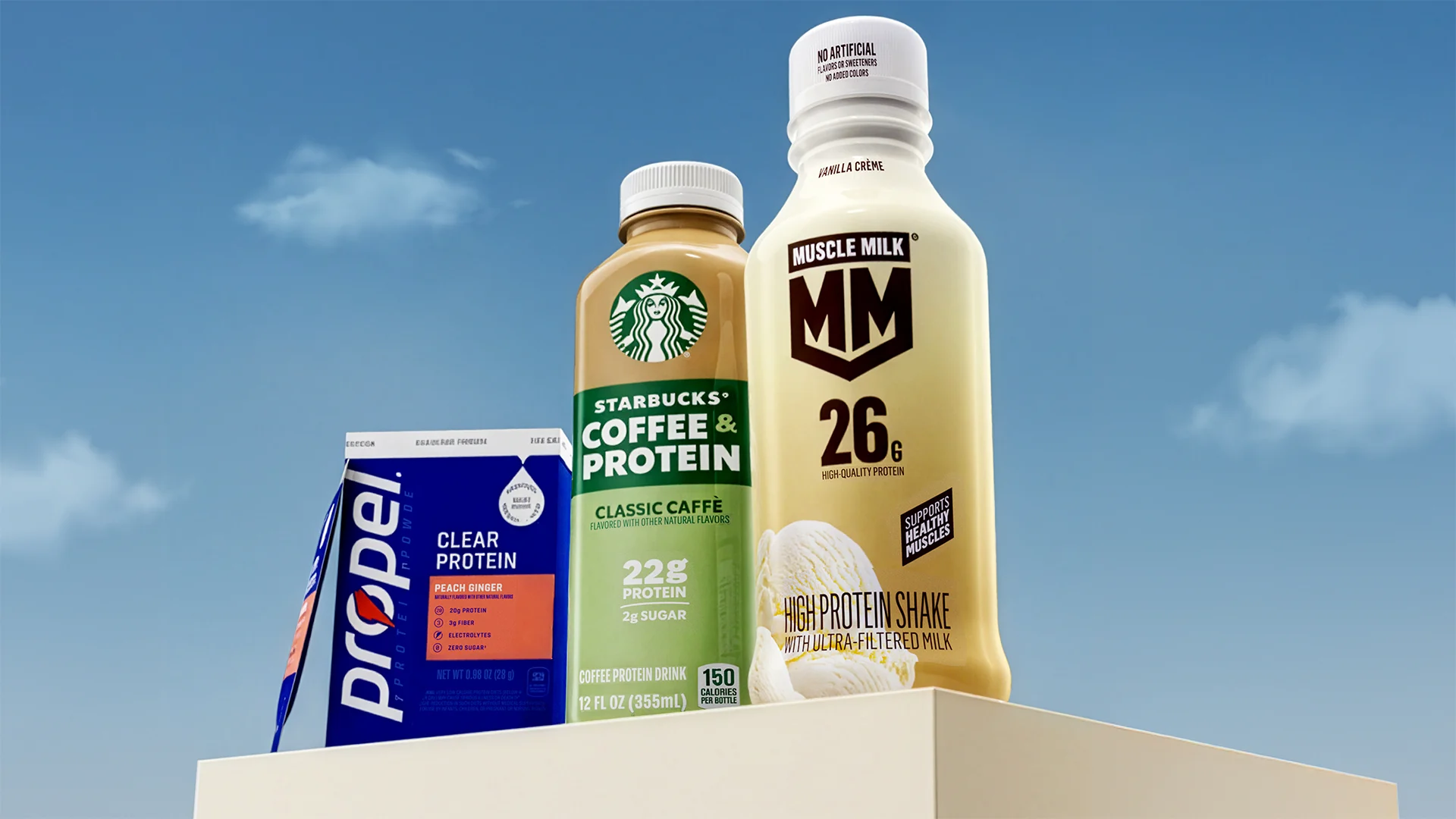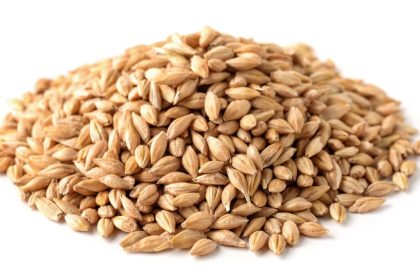Americans have developed a strong desire for protein, prompting major food manufacturers like PepsiCo to introduce new products featuring this popular macronutrient. On Thursday, PepsiCo announced its latest initiatives aimed at tapping into this growing trend. The company unveiled a Starbucks coffee protein drink, a revamped line of Muscle Milk protein shakes, and new Propel flavored waters that integrate whey protein, fiber, and electrolytes.
Research from the International Food Information Council (IFIC), an organization funded by the food industry, reveals that in 2024, 71% of Americans have attempted to increase their protein consumption. This marks a rise from 67% in 2023 and 59% in 2022. Jaime Schwartz Cohen, a registered dietitian and executive vice president of nutrition at Ketchum, noted, “After decades of consumers reducing fat and watching carbs, the pendulum has swung toward protein.”
In recent years, food companies have responded to consumer demand by flooding supermarket shelves with protein-fortified products. Some notable introductions include General Mills’ protein-enriched Cheerios and Wheaties cereals and The Barilla Group’s expanding line of protein pasta. Even Khloé Kardashian has entered the market with her own protein popcorn startup.
PepsiCo’s U.S. beverages CEO, Ram Krishnan, emphasized the need for clarity in the protein narrative. “We want to redefine the protein conversation,” he told Fast Company. “Everybody in the country is talking about protein, but it’s actually crowded and confusing, and the consumers really don’t understand all of the science behind protein.”
Krishnan underscored the significance of protein, especially for aging populations in the U.S. and similar regions. Protein transforms into amino acids, which are essential for building and maintaining muscle. It also aids in weight loss by promoting a sense of fullness and contributes positively to immune function and inflammation.
Daily protein recommendations vary, but adults typically should consume around 60 grams. Schwartz Cohen pointed out that many consume only 15 to 30 grams per meal, leading to confusion, as eight in ten Americans are uncertain about their protein needs. “That’s where clear, evidence-based guidance from brands and registered dietitians is critical,” she added.
PepsiCo’s global chief science officer, Tara Glasgow, highlighted that the timing of protein consumption matters as well. Studies show that splitting daily intake into three meals of 30 grams each can boost muscle development by 25% compared to consuming all 90 grams at once during one meal. “It shows you the lift that you get from taking that approach, whether you’re getting it from a beverage throughout the day, or you’re getting it from a snack here or there,” she noted.
With this knowledge in hand, PepsiCo’s strategy aims to offer more protein-rich beverages designed for consistent consumption throughout the day. Their new ready-to-drink Starbucks coffee contains 22 grams of protein per bottle, inspired by the trend of social media influencers integrating protein powder into their morning drinks.
The Propel Clear Protein, with 20 grams of whey protein per serving, is crafted as a refreshing option suitable for any time of day. Flavors such as watermelon mint and peach ginger add appeal. Glasgow mentioned that this innovation was influenced by the rising popularity of GLP-1 weight-loss medications like Ozempic and Wegovy, which can result in rapid weight loss and potential muscle loss.
“Consumers that are on these GLP-1 medications need to be mindful of adding protein to their diet,” Glasgow explained. “One side effect of those medications is digestive issues, so fiber can also be helpful. Lastly, reducing calories can lead to dehydration since about 20% of hydration comes from food.”
While not exclusively designed for GLP-1 users, the Propel Clear Protein line incorporates benefits that emerged from these needs. Muscle Milk, valued at around $500 million in retail sales, has perhaps seen the most significant makeover. Krishnan described a segment of “dissatisfied protein drinkers” looking for protein boosts but often not enjoying the taste or ingredients of existing products.
The revamped Muscle Milk now includes ultra-filtered milk, yielding a smoother taste compared to its predecessors. Protein content ranges from 26 to 42 grams per bottle, with the removal of artificial flavors, sweeteners, and colors reflecting broader consumer preferences for natural ingredients.
With weakened sales in the carbonated soft drink sector, PepsiCo sees an opportunity to cater to a health-conscious demographic. The company’s efforts come as its market share in the U.S. slipped behind Dr Pepper and later Sprite. The decline in carbonated drink consumption has negatively impacted PepsiCo’s Beverages North America sector for over two years—a challenge Krishnan was tasked to address in early 2024.
The company recently began shifting towards healthier options, which included a $1.65 billion acquisition of Poppi prebiotic soda and the launch of a new prebiotic cola shortly after.
“We believe beverages are becoming more functional,” Krishnan stated. “Protein is just one portion of the equation. It’s not the only thing we’re doing.”






